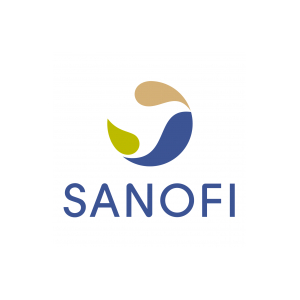Job Description
POSITION SUMMARY
Sanofi is seeking a detail-oriented and highly motivated Senior Scientist to join the Bioanalytical Sciences team. The successful candidate will be responsible for developing, qualifying, and transferring immunoassays (e.g. ELISA, ECLIA on MSD platform) and/or Cell-Based Assays to support pharmacokinetic (PK) and immunogenicity (ADA) readouts from in vivo studies to help advance research, pre-clinical, and clinical stage programs. The incumbent will also analyze pre-clinical study samples using immunoassays, Luminex, and/or cell-based assays. This list contains the major duties and requirements of the job and is not all-inclusive. The selected individual may be expected to perform role-related duties other than those contained in this document.
ESSENTIAL FUNCTIONS
Develop, qualify, and transfer complex ligand binding assays for measuring the PK of XTENylated molecules and relevant metabolites, and for detection of antibodies against XTENylated molecules.
Interact with CRO vendor partners to oversee PK and ADA method transfer, validation, and regulated sample analysis in support of GLP Tox and Clinical studies.
Perform Non-GLP pre-clinical sample analysis using in-house qualified assays (PK, PD, ADA).
Document all activities in an electronic notebook, compile data and analyze results in a timely fashion.
Present data in group settings to update other teams on progress of assay development.
Perform routine equipment maintenance, calibrations, and verifications as needed.
Collaborate with other assay development team members to complete tasks and meet departmental goals.
Work cross-functionally with members of other departments to complete tasks when required.
BASIC QUALIFICATIONS
A minimum of a Bachelor's degree in a scientific discipline with 9+ years of work experience, Master’s degree with 7+ years or Ph.D. with 3+ years of work experience. Equivalent experience may be accepted.
Experience developing Ligand Binding Assays for PK and ADA is a must.
Proficient in working with Microsoft Word, Excel, and PowerPoint.
Ability to work in a fast-paced, dynamic environment with effective time-management skills.
Must be willing to work as part of a team and demonstrate good interpersonal skills.
Self-motivated to carry out both new and routine tasks.
PREFERRED QUALIFICATIONS
Experience working in a GCP/GLP environment is desirable.
Mammalian cell culture experience is desirable.
Experience with electronic notebook systems, SoftMax Pro, and Prism a plus.
Sanofi Genzyme
Cambridge, MA
As the specialty care global business unit of Sanofi, we are focused on rare diseases, rare blood disorders, multiple sclerosis, oncology and immunology. More than 30 years since we began, we remain just as committed to and passionate about advancing therapies that offer hope to patients and families.
Our approach is shaped by a long history of developing highly specialized treatments and forging close relationships with physician and patient communities. Founded as Genzyme in Boston in 1981, we rapidly grew to become one of the world’s leading biotechnology companies, recognized for our pioneering development of treatments for rare genetic disorders and our innovative contributions to medical science and biomanufacturing.
Genzyme became part of Sanofi in 2011. While continuing to focus on rare diseases, we also established ourselves as a leader in the field of multiple sclerosis. In 2016, our focus expanded to include Sanofi’s programs in oncology and immunology. In 2018, with the acquisitions of Bioverativ and Ablynx, we further expanded our focus to include rare blood disorders, bringing deep expertise in hematology.
Our ambition is to be the industry leader in specialty care. We currently provide more than 25 treatments to patients globally, with many potential new therapies being studied in clinical trials and in Sanofi laboratories.
Driven by our commitment to patients, we strive to develop strong relationships with our patient communities, listening to their perspectives so that we can truly understand their needs. These collaborations continue to guide and motivate us as we work to push the boundaries of medicine and technology to develop new and better therapies where none existed before.
-
IndustryBiopharmaceuticals
-
No. of Employees14,000+
-
Website
-
Jobs Posted207


